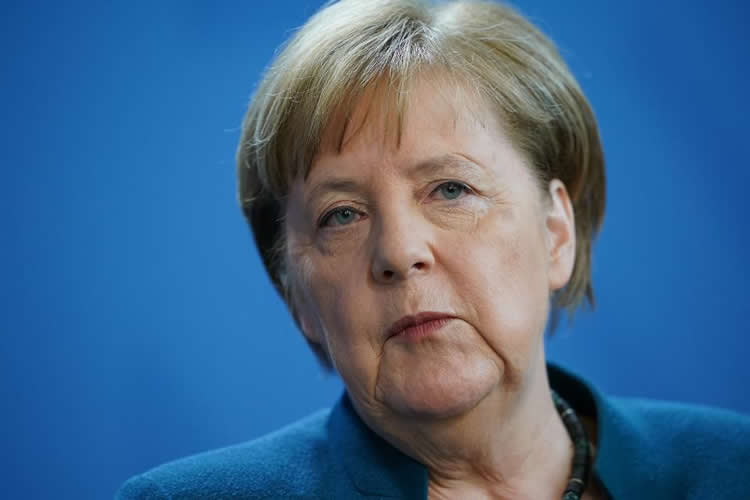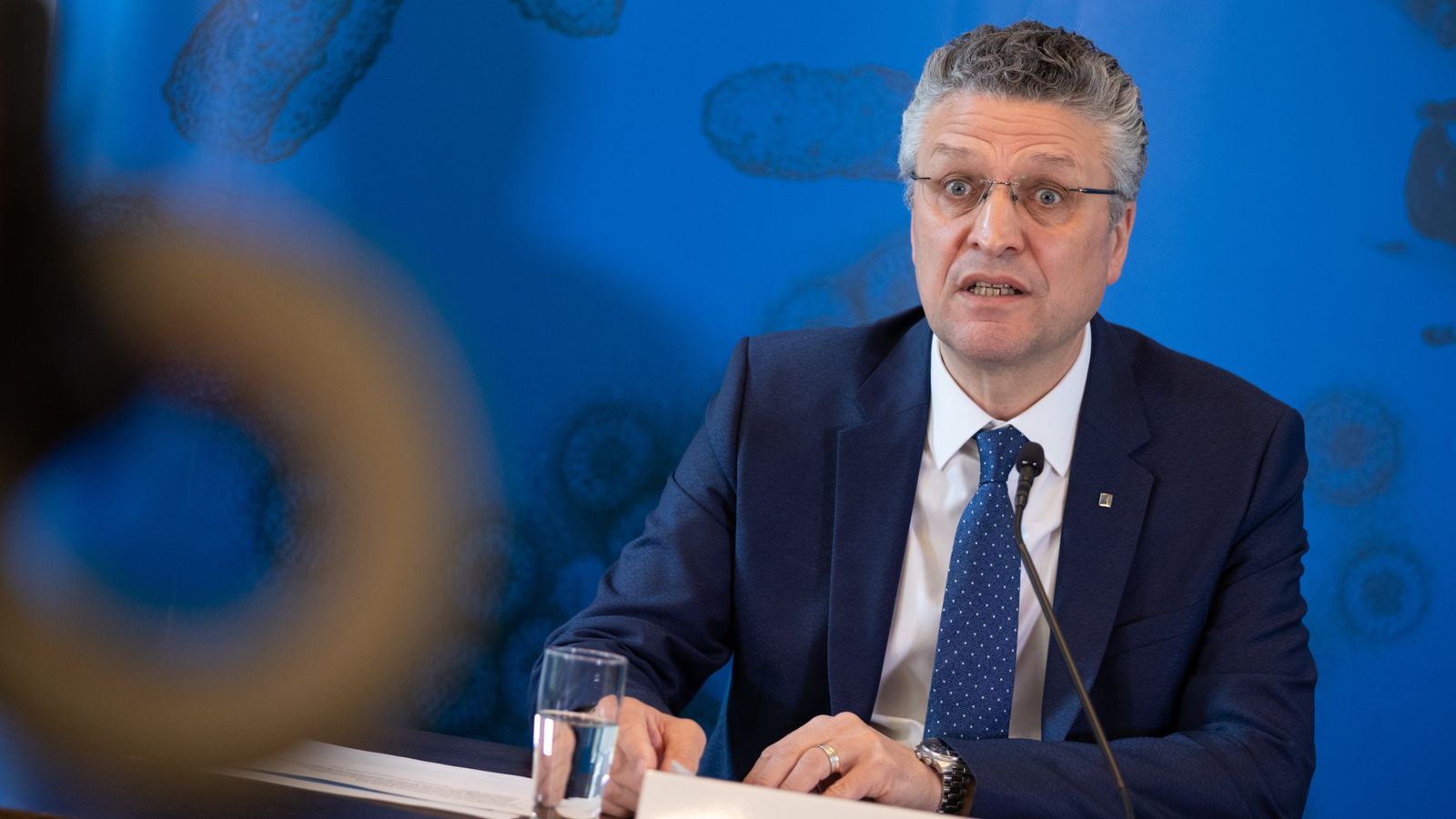
German Chancellor Angela Merkel
“The number should stay below one, that is the big goal,” the country’s disease control chief says of the virus reproduction rate.
Germany faces the prospect of having to restore stricter lockdown measures as its number and rate of coronavirus infections grew again.
Hailed as among Europe’s most successful in tackling the pandemic, the country began relaxing restrictions on 20 April to allow small businesses to open as the reproduction rate of the virus fell.
Based on the average number of people each infected person transmits coronavirus to, the rate – known as ‘R’ – had fallen to 0.7.
It has since increased to 0.96, only just below the figure of one officials say it must not exceed in order to keep the pandemic manageable.
Advertisement
And while officials believe it is too early to say whether the lifting of restrictions caused the increase, the country’s overall number of COVID-19 cases grew by 1,018 on Monday and 1,144 on Tuesday.
Developments there are of particular significance given that other governments – including the UK’s – are monitoring the situation closely in the hope it could help guide their approach to easing lockdown measures.
Lothar Wieler, head of Germany’s disease control centre the Robert Koch Institute, stressed the importance of the reproduction rate.
“The number should stay below one, that is the big goal,” he told a news conference.

“The further it is below one, the more secure we can feel, the more leeway we have, but there are other numbers that are also important,” he said, adding that these included the number of cases per day, and testing capacity.
He urged people to continue complying with social distancing guidelines, wearing masks on public transport and in shops, and staying at home where possible.
“Against the background of the easing (of restrictions), let’s ensure we can continue to defend this success we have achieved together,” he said.
“We don’t want the number of cases to rise again. Let’s, insofar as is possible, stay at home, let’s stick to the reduced contact.”
The virus has infected a total of nearly 160,000 people and killed about 6,000 in Germany, compared to more than 20,000 who have died after contracting COVID-19 in the UK.
Education ministers of Germany’s 16 federal states agreed on Tuesday that schools across the country would slowly reopen classes for all ages until the summer holidays, although pupils would have to work and learn in smaller groups.
“There will be no regular classes before the summer holidays,” said Stefanie Hubig, head of the ministerial council for education.























